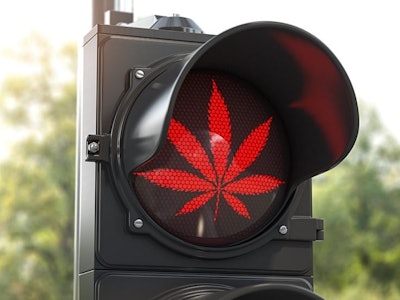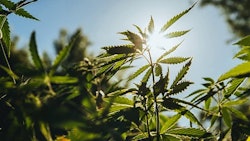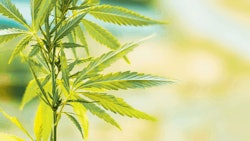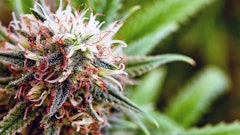
The U.S. Hemp Roundtable (USHR) does not support a strict ban on delta-8 tetrahydrocannabinol (THC), but the nonprofit business advocacy organization does support regulating the cannabinoid akin to adult-use cannabis.
Since early March, USHR has taken a strong stance against “marketing delta-8 THC products under the guise of the hemp name, for any intoxicating value or euphoric effect,” calling it “irresponsible.” Unlike cannabis, hemp is, by definition, not intoxicating to the degree that delta-9 THC is.
Over the past year, delta-8 has gained a lot of attention. And in the last two months, there seems to be no hotter topic in some cannabis and hemp circles than delta-8—its source, its legal status, its intoxicating effects, its extraction and testing process, its business opportunities and more—which has prompted USHR’s attention to provide industry updates on where it stands.
“While we are not calling for a strict delta-8 ban, we believe that intoxicating products should be regulated akin to adult-use cannabis, sold in dispensary-like settings away from minors,” the organization said in a statement April 30. “The dietary supplement and food/beverage additive lanes should be limited to non-intoxicating hemp products.”
USHR referenced an example of how intoxicating cannabinoids can cause harm to unsuspecting children.
A cannabidiol (CBD) store in Menomonee Falls, Wisc., just northwest of Milwaukee, was raided and three people were arrested when local law enforcement executed a search warrant March 30, following an investigation into the nonfatal overdose of two small children who unintentionally ingested a CBD-related product a parent bought from the dispensary, according to a Waukesha County Sheriff’s Department news release.
Law enforcement authorities obtained evidence the business was selling products containing prohibited levels of delta-9 THC—the products were labeled by the business as CBD or delta-8 THC—according to the sheriff’s department.
Wisconsin state law allows for the sale of CBD-related products; however, CBD products are limited to a legal threshold of 0.3% delta-9, which is the principal psychoactive constituent of cannabis. “Several of the products that were obtained from the Menomonee Falls dispensary during the investigation were found to have delta-9 THC levels in excess of 20%,” the sheriff’s release said.
As the sale of delta-8 products has gained traction from, perhaps, a legal loophole—the Agricultural Improvement Act of 2018 (the 2018 Farm Bill) specifically defines the legal delta-9 concentration for hemp but does not define delta-8 concentrations—stakeholders in the hemp industry have explored the possible revenue stream. Hemp biomass could fetch approximately $23 per pound at the current price of delta-8 distillate, as compared to $2 per pound when selling CBD hemp, according to Kush Marketplace.
RELATED: Delta-8 THC: Threat or Opportunity?
“Sales of the product have exploded, providing profits for some farmers and companies,” USHR said. “But policymakers across the country have raised alarms about intoxicating products being sold without regulation or oversight in gas stations and vape shops across the country.”
Similar to CBD when the 2014 Farm Bill was passed—when many states first launched hemp pilot programs—conditions for delta-8 and artificially derived cannabinoids are in flux, prompting some states to establish product bans or adopt regulatory framework.
RELATED: States Begin Implementing Delta-8 THC Bans
On April 23, the Vermont Agency of Agriculture, Food and Markets (VAAFM), which oversees Vermont’s hemp program, sent an email to all registered hemp producers clarifying that delta-8 products are not hemp products and are illegal to manufacture, even though the state’s definition of hemp does not exclude delta-8.
“There is clearly a need for clarification of existing laws,” USHR said. “More direct attempts at clarity are beginning to appear in new bills and regulations, but we fear some bills will be sweeping and not data-driven.
“The Roundtable is in the process of developing science-based policies on how to address delta-8 and other intoxicating compounds in state and federal law. We are worried about patchwork of state laws created that cause confusion and impair interstate commerce.”
At least 10 states are currently trying to address delta-8 in their regulatory and compliance framework:
Alabama: House Bill 2 clarifies that all types of THC are controlled substances except for THC in hemp. This bill has passed both chambers and is on the governor’s desk.
Florida: Senate Bill 1766 would restrict delta-8 sales to persons 21 and older. The bill also establishes labeling and shipping requirements and creates criminal penalties for sales of delta-8 products to persons under 21.
Kentucky: The Kentucky Department of Agriculture issued a statement that delta-8 is a controlled substance under federal and Kentucky law. The statement warned registrants that distributing delta-8 products could lead to expulsion from the hemp program and criminal prosecution.
New York: S. 0854, New York’s new adult-use cannabis law, defines THC to include delta-9, delta-8, and delta-10 and their optical isomers.
North Dakota: H.B. 1420 amends North Dakota’s controlled substances schedule by redefining THC to include delta-8 as part of delta-6 cis/trans THC. The bill passed the state House but failed to pass the Senate.
Oklahoma: H.B. 1961 defines cannabis to include delta-8 and delta-10 with a concentration in excess of 0.3% on a dry-weight basis. H.B. 2004, which has passed the Oklahoma House, defines cannabis to include material with delta-8 or delta-10 that is not grown, processed or sold pursuant to Oklahoma’s hemp program.
Oregon: H.B. 3000 would define THC to include all THCs and intoxicating cannabinoids that are artificially derived. The bill would also prohibit sales of cannabinoid products intended for human consumption that contain more than 0.3% THC and would restrict sales of delta-8 products intended for human consumption to persons 21 and older.
Utah: S.B. 39 makes it unlawful to distribute, sell or market a hemp or cannabinoid product that contains more than 0.3% of a THC analog. Although Gov. Spencer Cox vetoed S.B. 39, the bill passed with large majorities in both legislative chambers. The legislature has adjourned, but it can reconvene with a two-thirds’ majority to override the governor’s veto. The U.S. Hemp Roundtable is encouraging Utah hemp supporters to use its State Action Center to urge state legislators to reconvene to override the governor’s veto of S.B. 39 for its good parts.
Vermont: The Vermont Agency of Agriculture, Food and Markets recently emailed its hemp program registrants a statement that it is illegal to manufacture delta-8 products because it is illegal to use synthetic cannabinoids in hemp products or hemp-infused products. The email linked to an official webpage with further information.
Washington: The Washington State Liquor and Cannabis Board issued a policy statement that delta-8 may be derived from licensed facilities and added to cannabis products; however, hemp-derived delta-8 could not be produced in a licensed facility or sold in licensed cannabis stores.


























